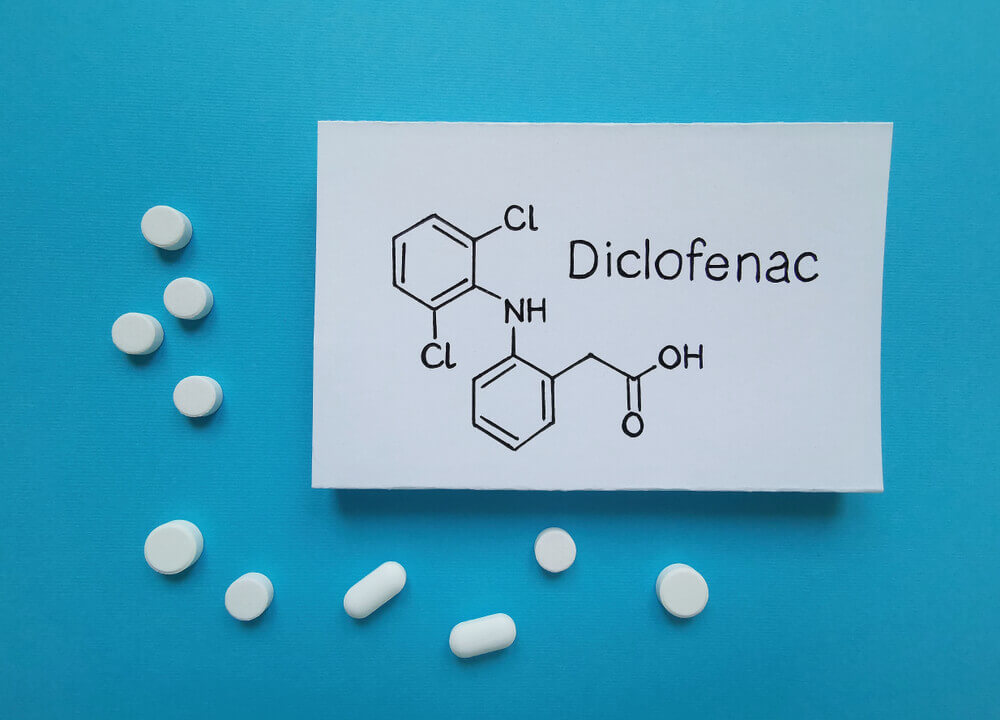Tooth pain can be an excruciating experience that affects our daily lives, making eating, speaking, or concentrating difficult. Finding effective pain relief is crucial to restoring our comfort and well-being, whether it’s a toothache caused by dental decay, gum infections, or a recent dental procedure. This guide explores a range of commonly used tooth pain medicines and their potential benefits.
Join us in shedding light on some of the most commonly prescribed and over-the-counter painkillers for toothache.
Ibuprofen
It is a nonsteroidal anti-inflammatory drug or NSAID commonly used to relieve tooth pain and reduce inflammation. It can be an effective tablet for tooth pain caused by dental conditions such as tooth decay, gum infections, or dental procedures.
Ibuprofen inhibits the production of prostaglandins responsible for pain and inflammation. It is available in tablets and capsules and should be used according to the recommended dosage.

Tablets with Ibuprofen in Pakistan
Brand Name | Manufacturer |
Brufen | Abbott Laboratories |
Actifen | GlaxoSmithKline |
Kayfen | Karachi Chemical Industries |
Inflam | Spencer Pharma |
Ottofen | Eros Pharmaceuticals |
Side Effects:
Gastrointestinal Issues: Stomach pain, indigestion, heartburn, nausea, and vomiting.
Gastric Ulcers and Bleeding: Ibuprofen can increase the risk of developing ulcers and gastrointestinal bleeding, especially with long-term use or high doses.
Kidney Problems: Prolonged use of ibuprofen may lead to kidney damage, impaired kidney function, fluid retention, and increased blood pressure.
Cardiovascular Risks: Higher doses or long-term use of ibuprofen may increase the risk of heart attack, stroke, or other cardiovascular events.
Allergic Reactions: Allergic reactions to ibuprofen can manifest as skin rashes, itching, swelling, or difficulty in breathing.
Nimesulide
Nimesulide is a nonsteroidal anti-inflammatory drug (NSAID) that can be prescribed as a tablet for toothache and inflammation. It is known for its analgesic and anti-inflammatory properties, making it useful in managing toothaches resulting from dental conditions or procedures.
Nimesulide works by inhibiting the production of inflammatory substances called prostaglandins. It is available in suspension or tablet form and should be used as directed by a dentist or healthcare professional.

Tablets with Nimesulide in Pakistan
Brand Name | Manufacturer |
Nims | Sami Pharmaceuticals |
Numerol | Bryon Pharmaceuticals |
Slide | Helicon Pharmaceutek Pakistan |
Nugesic | Helix Pharma |
Mesulid | Atco Laboratories |
Side Effects:
Gastrointestinal Issues: Nimesulide can irritate the stomach lining, leading to stomach pain, indigestion, nausea, vomiting, and diarrhoea. It may also increase the risk of gastric ulcers or bleeding.
Skin Reactions: Allergic reactions to nimesulide can cause skin rashes, itching, hives, or, in rare cases, severe skin reactions like Stevens-Johnson syndrome or toxic epidermal necrolysis.
Liver Toxicity: Nimesulide has been associated with cases of liver damage, including hepatitis and liver failure.
Kidney Problems: Prolonged use of nimesulide can impair kidney function, leading to fluid retention, swelling, and increased blood pressure.
Cardiovascular Risks: Although further research is required to establish a clear association, there have been concerns about the potential cardiovascular risks of nimesulide.
Paracetamol
Paracetamol, also known as acetaminophen, is a commonly used analgesic and antipyretic medication. It is widely used as a teeth pain tablet in Pakistan by blocking pain signals in the brain.
Paracetamol is widely available over-the-counter and is often used as a first-line treatment for mild to moderate toothaches. It is manufactured in tablets, capsules, and liquid formulations and should be used according to the recommended dosage.

Tablets with Paracetamol in Pakistan
Brand Name | Manufacturer |
Panadol | GlaxoSmithKline |
Calpol | GlaxoSmithKline |
Paramol | Euro Pharma International |
Pyrol | Semos Pharmaceuticals |
Paratol | Highnoon Laboratories |
Side Effects:
Gastrointestinal Issues: Stomach pain, indigestion, nausea, and vomiting.
Liver Toxicity: High doses or prolonged use can cause liver damage.
Allergic Reactions: Skin rashes, itching, swelling, or difficulty in breathing.
Interactions: Can interact with other medications, leading to adverse effects.
Overdose Risk: Excessive amounts can cause severe liver damage or be life-threatening.
Naproxen
Naproxen is a nonsteroidal anti-inflammatory drug (NSAID) that can be prescribed for tooth pain associated with inflammation. It helps to reduce swelling, inflammation, and pain caused by dental conditions such as tooth decay, gum infections, or dental procedures. It is considered the best painkiller tablet for toothache in Pakistan.
Naproxen works by inhibiting the production of prostaglandins responsible for pain and inflammation. It is available in tablet form and should be used under the guidance of a dentist or healthcare professional.

Tablets with Naproxen in Pakistan
Brand Name | Manufacturer |
Flexin | Abbott Laboratories |
Fonza | Xenon Laboratories |
Naprical | Dyson Research Laboratories |
Naptil | Genome Pharmaceuticals |
Noral | Alson Pharmaceuticals |
Side Effects:
Gastrointestinal Issues: Stomach pain, indigestion, nausea, ulcers, or gastrointestinal bleeding.
Skin Reactions: Allergic reactions such as rashes, itching, or, rarely, severe skin reactions.
Liver Toxicity: Cases of liver damage, including hepatitis and liver failure.
Kidney Problems: Impaired kidney function, fluid retention, swelling, and increased blood pressure.
Cardiovascular Risks: Potential association with cardiovascular events like heart attack or stroke.
Tramadol
It is an opioid analgesic and is prescribed as a toothache medicine in Pakistan for moderate to severe tooth pain that is not adequately controlled by other pain medications. It binds to opioid receptors in the brain, reducing pain perception.
Tramadol should be used with caution and under the guidance of a dentist or healthcare professional due to its potential for misuse, dependence, and addiction. It is available in various formulations, including immediate-release and extended-release tablets, and should be used according to the prescribed dosage and duration.

Tablets with Tramadol in Pakistan
Brand Name | Manufacturer |
Acugesic | GlaxoSmithKline |
Tamadol | Highnoon Laboratories |
Tonoflex | Sami Pharmaceuticals |
Zultra | Wilshire Laboratories |
Tramal | Searle Pakistan |
Side Effects:
Nausea and Vomiting: Common side effects of tramadol.
Constipation: Tramadol can cause reduced bowel movement and constipation.
Dizziness and Drowsiness: Tramadol may cause dizziness and excessive sleepiness.
Respiratory Depression: Tramadol can suppress breathing in higher doses or when combined with other depressants.
Misuse and Addiction: Tramadol carries a risk of misuse, dependence, and addiction.
Flurbiprofen
Flurbiprofen is a nonsteroidal anti-inflammatory drug (NSAID) that can be prescribed to alleviate tooth pain caused by inflammation. It helps reduce swelling and inflammation around the tooth, relieving the associated discomfort.
Flurbiprofen can be beneficial in managing toothaches resulting from dental conditions such as tooth decay, gum infections, or dental procedures. It is typically available in tablet or capsule form and should be used as directed by a dentist or healthcare professional.

Tablets with Flurbiprofen in Pakistan
Brand Name | Manufacturer |
Froben | Abbott Laboratories |
Ansaid | Pfizer Laboratories |
Biprofin | Martin Dow Pharmaceuticals |
Dol | Wilshire Laboratories |
Flurbin | Mass Pharma |
Side Effects:
Gastrointestinal Issues: Stomach pain, indigestion, nausea, vomiting, and diarrhoea.
Gastric Ulcers and Bleeding: Flurbiprofen can increase the risk of developing gastric ulcers and gastrointestinal bleeding.
Kidney Problems: Prolonged use of flurbiprofen may lead to kidney damage, impaired kidney function, fluid retention, and increased blood pressure.
Cardiovascular Risks: Flurbiprofen may increase the risk of heart attack, stroke, or other cardiovascular events, especially with long-term use or high doses.
Allergic Reactions: Allergic reactions to flurbiprofen can manifest as skin rashes, itching, swelling, or difficulty in breathing.
Diclofenac
As a nonsteroidal anti-inflammatory drug (NSAID), Diclofenac can effectively manage tooth pain caused by inflammation. It helps reduce the swelling and inflammation around the affected tooth, relieving the associated pain. Diclofenac is commonly used for dental conditions such as toothaches, post-extraction pain, or other dental procedures that result in discomfort.
It is available in tablets, capsules, and gels, allowing for different modes of administration depending on the severity and type of tooth pain. However, the recommended dosage and guidance of a dentist or healthcare professional should be followed.

Tablets with Diclofenac in Pakistan
Brand Name | Manufacturer |
Dicloran | Sami Pharmaceuticals |
Voren | Continental Chemical Company |
Voltrex | Arsons Pharmaceutical Industries |
Voltral | Novartis Pharma |
Zwitter | Wilshire Laboratories |
Side Effects:
Gastrointestinal Issues: Stomach pain, indigestion, heartburn, nausea, and vomiting.
Gastric Ulcers and Bleeding: Diclofenac can increase the risk of developing gastric ulcers and gastrointestinal bleeding.
Kidney Problems: Prolonged use of diclofenac may lead to kidney damage, impaired kidney function, fluid retention, and increased blood pressure.
Cardiovascular Risks: Diclofenac may increase the risk of heart attack, stroke, or other cardiovascular events, especially with long-term use or high doses.
Allergic Reactions: Allergic reactions to diclofenac can manifest as skin rashes, itching, swelling, or difficulty breathing.
Co-Codamol
Co-codamol is a combination medication that contains codeine and paracetamol. It can be prescribed to manage moderate to severe tooth pain that is not adequately relieved by other pain medications. Codeine, an opioid analgesic, acts on the central nervous system to relieve pain, while paracetamol has analgesic and fever-reducing properties. Co-codamol can benefit tooth pain cases where other measures have not provided sufficient relief.
However, it should be used with caution and under the guidance of a dentist or healthcare professional due to the potential for misuse and addiction associated with codeine. It is important to follow the recommended dosage and duration of use to minimize risks and maximize the benefits of tooth pain relief.

Side Effects:
Nausea and Vomiting: These are the common side effects of co-codamol.
Constipation: Co-codamol can cause reduced bowel movement and constipation.
Dizziness and Drowsiness: Co-codamol may cause dizziness and excessive sleepiness.
Respiratory Depression: In higher doses or when combined with other depressants, co-codamol can suppress breathing.
Misuse and Addiction: Co-codamol carries a risk of misuse, dependence, and addiction.
Celecoxib
Celecoxib is also a nonsteroidal anti-inflammatory drug (NSAID) which is used to manage pain due to inflammation. Though it is not generally prescribed by dentists, it can be used to treat tooth pain due to inflammation. It can be used to alleviate dental pain due to tooth extraction, dental procedures and other toothaches.
However, it is important to remember that Celecoxib or any other NSAID should only be used when prescribed by the dentist. If you have mild tooth pain, try using other pain relievers like ibuprofen.

Tablets with Celecoxib in Pakistan
Brand Name | Manufacturer |
Celebexx | Getz Pharma |
Celetab | Indus Pharma |
Celart | Hilton Pharma |
Moveryl | Sami Pharmaceuticals |
Rheuoxib | Highnoon Laboratories |
Side Effects
Gastrointestinal Issues: Stomach pain or discomfort, indigestion, nausea, gas or bloating, diarrhea or constipation,
General Discomfort: dizziness, headache, mild fatigue or drowsiness
Swelling: Mild swelling due to fluid retention in the feet, hands, or ankles
Allergic Reactions: Skin rash, itching, or hives, swelling of the face, difficulty breathing
Kidney Problems: Reduced kidney function, fluid retention leading to swelling
Home Remedies for Tooth Pain
There are some simple home remedies that you can try for a momentary relief. However, these remedies are only for first aid, and you should consult with your dentist for resolution.
Saltwater Rinse: Dissolve salt into water and rinse your mouth with it for a few minutes. It will clean and reduce inflammation.
Cold Press: Press a cold compress on your cheek to numb the area and reduce the discomfort.
Clove Oil: add a few drops of clove oil on a cotton bud and place it straight at the problematic tooth. It will reduce the pain sensation.
Garlic: Combine some salt and a garlic clove, grind it, and apply the combination to the tooth. It may help reduce discomfort.
Hydrogen Peroxide Rinse: Mix hydrogen peroxide and water in equal quantities and rinse your mouth with the mixture.
